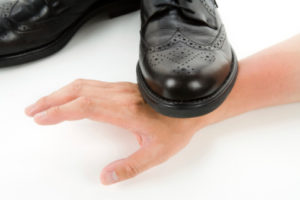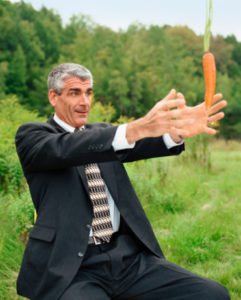Father’s Impact on Sons
Father’s impact on sons is of significance from the earliest moments to the end of the boy’s life. When a father sees the ultrasound that reveals he is about to have a son, the influence begins and continues unabated. The expectant father who looks forward to making his son a famous footballer will have a restrictive effect on the personality of his son. A fathers impact will be equally constraining if he is determined to undo the wrongs done to him by his own father. When a dad sees his son as the chance to ‘correct’ the wrongs that happened in his own sour relationship with his father, then the unborn child is coated with a layer of the past that burdens him – stifles his chance to be himself and be accepted as such. Instead the unborn son is pre-programmed to be what his father puts on him – he is burdened with sorting out his dad’s stuff, not finding his own path.
But a father who looks forward to having a son that he can nurture and guide to fulfill his own potential in a way that honors that child’s nature and personality will be a father who loves and cares unconditionally. A father that is around to step in when needed and be available for understanding, problem solving and widening the boy’s world view provides the nutrients for strong, sustainable growth into maturity.
Father’s Impact on Sons – Using strength for self-empowerment rather than for destructive acts
Young boys have a natural and normal tendency to explore their physical strength and ability to dominate. It is the fathers impact on sons that shapes the outcome – determines the parameters for where, when and how the boy uses his physical prowess. It is the father’s impact on sons that determines whether the son grows up to use physical power in positive ways such as hard laboring jobs or in negative ways such as provoking, intimidating and bullying others to dominate or prevail in a conflict.
Father’s impact their sons in a positive healthy way when they channel their sons physical prowess towards sports or artistic endeavors that highlight personal fitness and skill rather than hurting an opponent in the field.
Father’s impact their sons negatively when they push their sons past their physical limits to become winners in sports to the detriment of their muscle tissue, causing bone loss and joint deterioration. Fathers who encourage grueling training regimens and diets to shape a son as an athlete do so because they use their sons to make them feel special and admired – but while doing so, they obliterate their son’s sense of personal authority. These sons then become self-punishing resentful adults.
A musician who came for therapy due to intense conflict between performing to earn money versus composing for his pleasure and creative spirt, had a father who demanded that my client become a concert pianist . He was made to practice piano for most of the time he wasn’t in school, deprived of a normal social life, AND not allowed to go freestyle and indulge his talent. This client was so afraid to upset his father because he knew the price – being ostracized and excluded from family life. The father wanted his son to show the world that this family who came from nothing were now worthy of being admitted to and admired in high society. But my client couldn’t stand the way his strength was being focused. As a young adult he left home playing with jazz bands and composing his own music. He was riddled with guilt and shame for going against his father – necessitating therapy to help with these wounds of insecurity that were also affecting his own relationship with his wife and kids.
Father’s impact on Sons – Appropriate assertiveness
When people call a guy a ‘mama’s boy’ what they mean is that the man lacks assertiveness – or a backbone. Fathers impact on sons determine whether a boy will grow up to be assertive and motivated to take care of himself, or be anxious in the world and dependent on others to cushion his experiences.
A father who is determined to toughen up his son by beating him or putting him through grueling and inhumane endurance tests is not teaching appropriate assertiveness. He is in fact using cruelty to teach dominance –where his son will want to dominate others – ending up in master-slave relationships that often involve sado-masochism.
One of my client’s father continually mocked and beat his son up when he the father was frustrated. Sometimes he felt guilty and bought my client ice-cream to compensate. What my client learned was to be submissive and not trust in any reparation measures. He suspected any attempt to atone and make up – thereby hanging onto the trauma that my client re-experienced each time this cycle recurred.
But when a father encourages his son to speak up, go after what he wants within the norms and rules of the situation, then he is preparing his son to meet the world and deal with it in a manner that is realistic and involving inter-dependency. That is the healthiest state of adult relationship his son could achieve.
Father’s Impact on Sons – Developing a Sense of Willpower Rather than Passivity
If the father of my pianist client had allowed his son to develop his musical talent in an organic manner, he would have helped his son realize that he had choices, and fostered the beginnings of will power. Fathers impact on sons varies according to the way power is understood and managed.
In a family where the father assumes absolute power then his son has to take on the mantle of being passive, helpless and needy. The son grows up to believe that only one party in a relationship gets to have power, and he acts in a passive manner at work, in his romantic relationships and with his own children. One highly anxious client would become unhinged when he felt his boss and or wife didn’t acknowledge his strenuous efforts to be a “good boy;” feeling helpless and powerless in these relationships. As a son he would get a good response from his all-powerful father when he was obedient and didn’t think for himself or exert his will. When it failed to repeat in his adult life he was thrown! But with a lot of individual psychotherapy he became acquainted with will power and his wish to use it to make life work for him.
Fathers impact on sons in good ways when they nurture a strong sense of will power and motivation to be actively involved in their relationships both at work and personally. These fathers do not feel threatened by their sons having their own power. They don’t see it as a zero-sum game. That’s the best gift a father could give a son – that each can have their own power that are not in competition but work purposefully to enable each to take charge of their lives in pro-active ways.
Father’s Impact on Sons – Welcoming emotions as the key to good relationships
Fathers who hide their feelings, call emotions weak and show contempt for sons who have natural and normal emotions do great harm to their sons future relationship quality.
A very hard working professional, newly married felt unfairly maligned by his wife who complained about his apparent coldness towards her anxieties and fears. He would try to solve the problem that he believed she faced but didn’t deal with her anxiety or need for physical affection and soothing. He grew up in a large family as the eldest child having to help his working mother take care of his siblings. His father admonished him if he wanted affection or cried if he got hurt. Even if he was sick he was not supposed to show his pain or any emotion around it. He grew up with that attitude and was not able to be there for his wife. He couldn’t share his emotions because that was taboo and he couldn’t be there for his partner because in his family emotions were weak and messy. Individual and couples therapy over a long period of time helped this man feel safe enough to know, express and be proud of his emotions because they were the foundation of healthy relationships.
copyright, Jeanette Raymond, Ph.D. 2018
You might also like:
Fear of Becoming Like Your Parents
Four Ways Women Cause Marriage Trouble By Consulting Family Members





